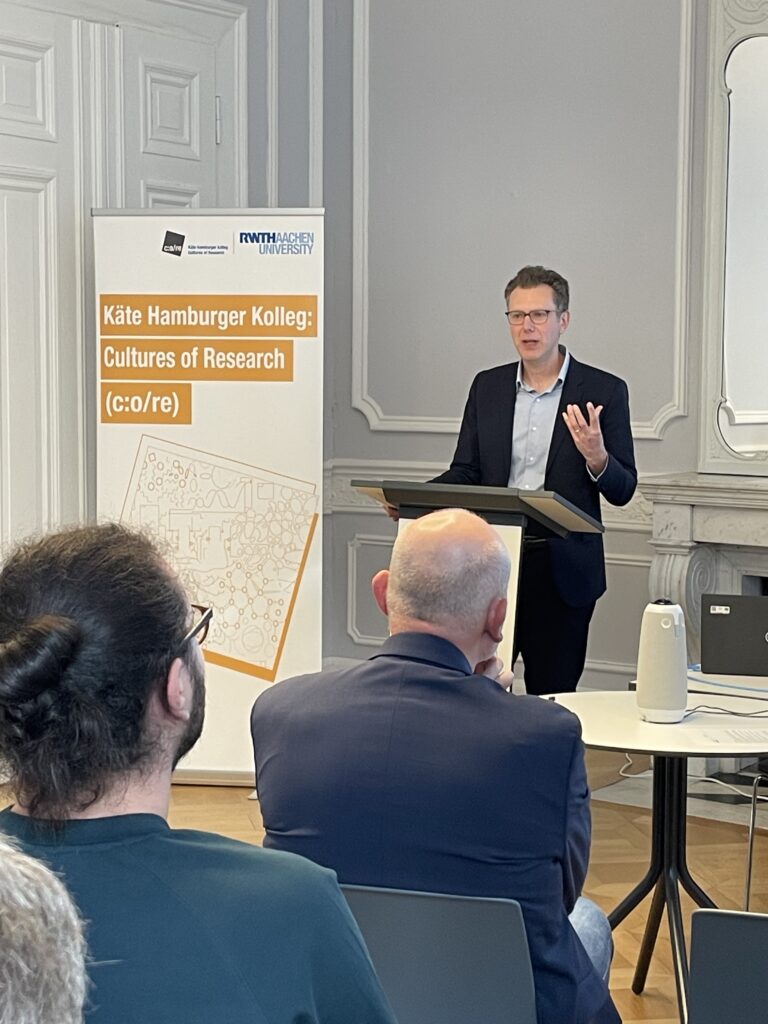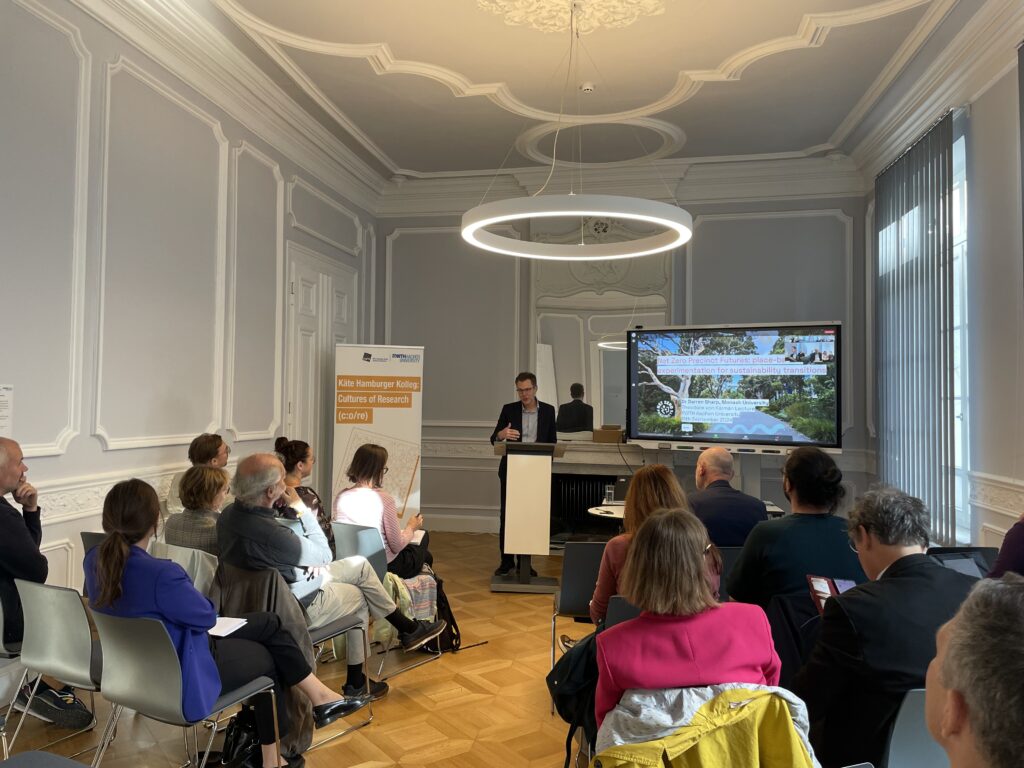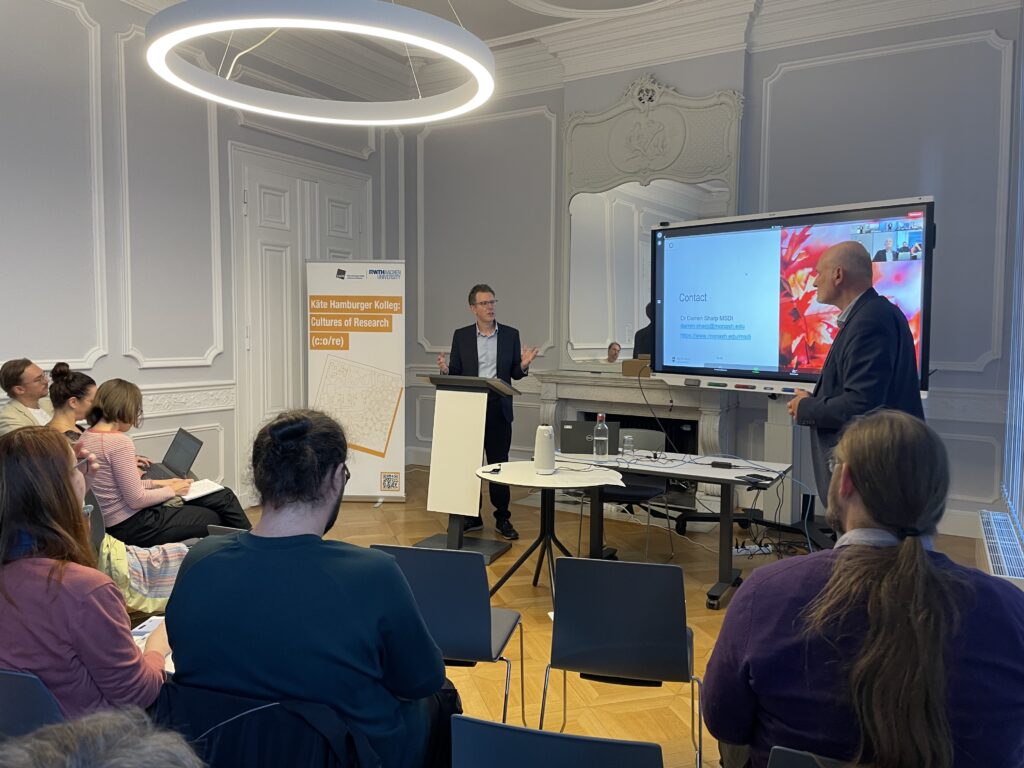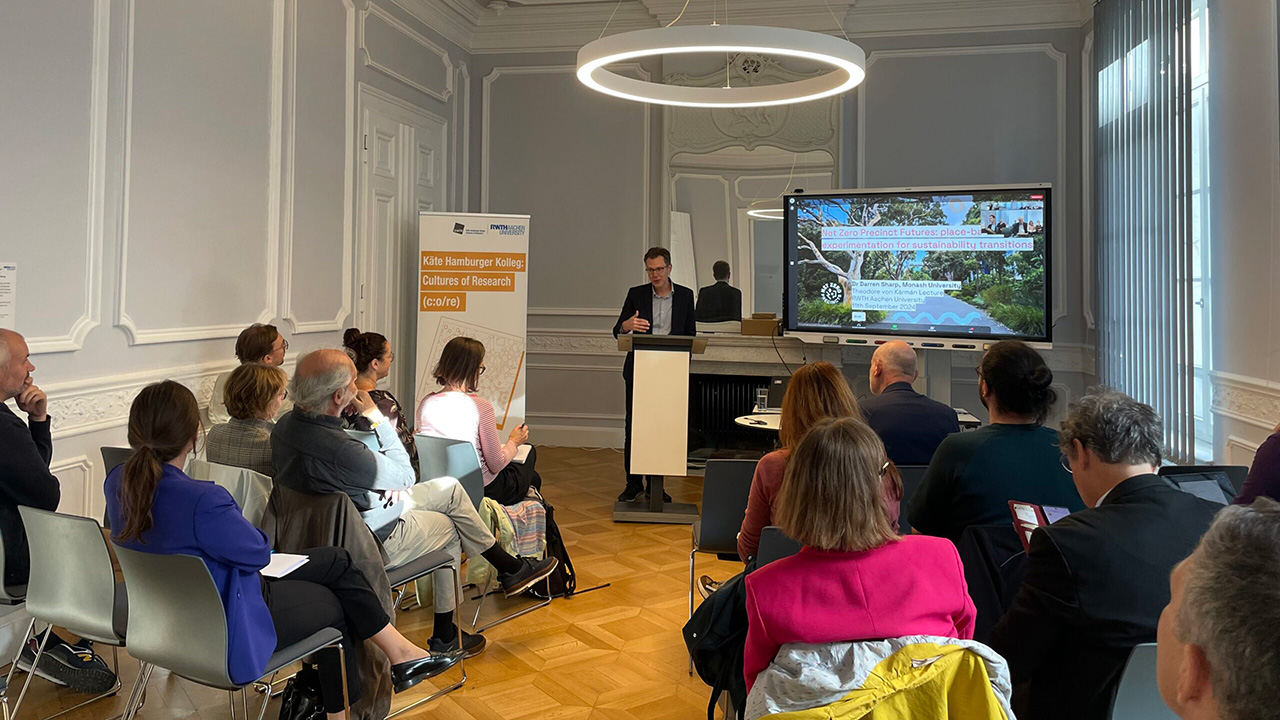
On September 11, 2024, Kármán Fellow Dr Darren Sharp gave an overview of Net Zero Precincts, a four-year ARC Linkage project to develop and test a new interdisciplinary approach to help cities achieve net-zero emissions. In this interdisciplinary project, Dr Sharp aims to bring together transition management and design anthropology with the goal of transitioning to net-zero carbon emissions in an urban environment.
The starting point of the project is the Net Zero Initiative of Dr Sharp’s home institution (Monash University, Melbourne, Australia), where Monash University, as the first university in Australia, has pledged to become carbon-neutral by 2030. Net Zero Precincts is researching this transition on campus to both facilitate its success and learn lessons for scaling up such initiatives at the precinct level.
Dr Sharps started by giving overviews of the two stages of the project that are already finished. In the orienting stage, Dr Sharp and his team made use of interviews with, among others, staff, students, representatives of local and state government, and people from NGOs. The goal was to identify the main sustainability challenges, drivers, and uncertainties along the way as they were understood by the interviewees.

In the second stage, which focused on agenda-setting, workshops were used to go from abstract visions of a net-zero future by participants to concrete ideas of actionable steps and transition pathways. It was especially important at this stage to take local perspectives, the local landscape, and nature into account.
Finally, Dr Sharp briefly discussed the ongoing stage 3 of the project, which started in April 2024. Here, the pathways and visions found in stage 2 of the project were used to develop experiments for the Monash campus living lab. Different projects to overcome the identified challenges or reach the set goals are tried out.
Overall, Dr Sharp argues that the process of scaling up a net-zero project to the precinct level requires a broad perspective. It is not enough to focus on technical innovations to reduce carbon emissions alone. Instead, it is also essential to rediscover First Nations’ knowledge systems, to think about small everyday innovations, and to mobilize the community. Challenges to achieving a net-zero future are local and community-specific and must also be considered.

The Net Zero Precinct project raises fundamental questions that are also of great importance for technical universities. The self-design of universities as living labs is becoming increasingly important under the current transformative conditions of research and innovation. This is because knowledge contexts and the orientation towards socially desirable results must be intertwined with the forms of academic knowledge production. In addition, in cooperation with the Living Labs Incubator at the Human Technology Center, we were able to not only work on specific research issues in living labs in a workshop, but also discuss the first steps towards developing a global network for living lab research at universities.
Links
Net Zero Precincts: Stage 1 Report (PDF)
Net Zero Precincts: Stage 2 Report (PDF)
Photos by Jana Hambitzer




Pingback: Towards Expanding STS?